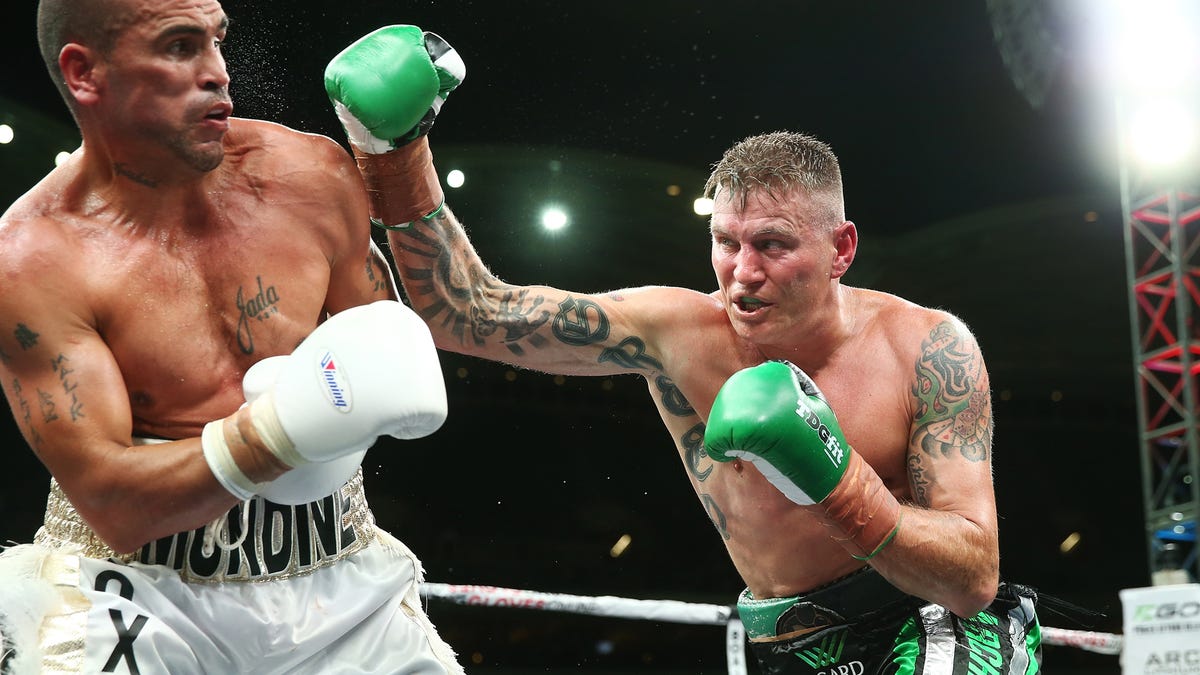Foxtel retreats on piracy, but is it mercy or weakness?
Foxtel has extended an olive branch to two men caught live-streaming one of its pay-per-view boxing matches. But in the battle over piracy, can the company afford to flip from pugilist to peacemaker?

The fight between Anthony Mundine and Danny Green was a big drawcard for Foxtel... until two Aussies streamed the fight on Facebook Live.
Foxtel isn't angry, it's just very disappointed.
While Australia's pay TV heavyweight has previously been more than willing to wage war on pirates in the media and to go to court to protect its copyright, the company today took a surprise back step in its long running battle against "illegal" file sharing.
Faced with two of its own customers who'd clearly pirated some of its top-shelf content -- Facebook Live-streaming a pay-per-view boxing match that otherwise fetched AU$60 for regular viewers -- Foxtel backed down. No legal action, just a strongly worded request for an apology (and an apology that would put Johnny Depp's YouTube mea culpa over Pistol and Boo to shame).
It might be a welcome relief for the two men who were facing down threats of lawyers and an expensive court case.
But it was an interesting move for a rights holder like Foxtel, which is increasingly finding fewer arrows in its quiver when it comes to fighting piracy. It all comes down to precedent, and a cursory glance at the copyright landscape over the past five years shows us their dwindling options. Let's review shall we?
The rights holders can't go after the ISPs: The 2012 case between Roadshow Films and iiNet found that internet service providers are not responsible for the conduct of their customers, including their download habits.
The rights holders can't go after downloaders: Remember Dallas Buyers Club? Film studios and broadcasters can't chase ISPs for the details of individual users accused of pirating.
The rights holders can go after the websites, but...: Siteblocking laws allow rights holders to request the ISP-level shutdown of certain piracy sites, but those laws have already fallen down with piracy sites skirting the bans.
This time, Foxtel had it in the bag. They had a direct link to the people pirating their broadcast, the ability to turn off their set-top boxes, hell, they even had a phone call with one of the men while he was illegally streaming the fight to 78,000 followers.
But with all this under its belt, Foxtel backed down in favour of a stern warning. The company today confirmed that it had been in touch with the two men, Darren Sharpe and Brett Hevers, but the lawyers have been put back into their lawyer drawers.
"We've expressed our great disappointment with their unlawful activities," said Foxtel CEO Peter Tonagh in a statement. "Rather than taking legal action, we decided to take the opportunity to educate both of them about the significant harm such actions bring to the production of local Australian content, including live sports.
"We have given the individuals the opportunity to formally apologise via a public social media post."
Those public posts were identical for both men. And in Facebook feeds characterised by chat about chicken nuggets and hobby photography, the legalese stands out like a sore thumb.
So what did Foxtel have to gain here? Are they playing the long game in trying to win over the public consciousness? Both Sharpe and Hevers won strong support from followers on Facebook (pages like "Put Ur Remotes Out to Support Dazza Sharp" rate a mention) and on GoFundMe.
Or does Foxtel have bigger fish to fry? A Facebook Live stream might damage the brand initially, but the ephemeral nature of the content is arguably less damaging than a new episode of "Game of Thrones" kicking about on a torrent.
But it seems a strange decision, when live sport is arguably one of the last big draw cards that pay TV broadcasters like Foxtel have left. If the battle against piracy is all built on precedent, why wouldn't a demonstrably litigious and vocal opponent of piracy like Foxtel want to make an example of two outed pirates?
For its part, Foxtel said in a statement that it takes illegal streaming seriously and would "make no apology for taking a firm stance to enforce our rights."
Our decision not to pursue legal action in the case of the Green v. Mundine illegal streamers in no way diminishes our push to reduce or eliminate piracy wherever we can. In this most recent case, we took the opportunity to focus on education in the hopes that people would start to understand the threat piracy poses. It should also be noted that in the case of the pirate sites, the only step Foxtel could take against them was to seek a court order. We took the view that in the case of these individuals an apology was sufficient.
The company says it is working with Facebook (and other social media platforms) to ensure live-streaming isn't used for copyright infringement in the future.
It's too early to tell what this episode means for the future of the piracy battle in Australia, or indeed Foxtel's approach to the growing threat ephemeral messaging and live-streaming poses to traditional broadcast media. Regardless, the company's final words to CNET are telling.
"It was the first time that Foxtel had experienced piracy of a live event on a mass scale," the company said.
"The illegal streaming of the Mundine v. Green fight was a wake-up call."
Does the Mac still matter? Apple execs tell why the MacBook Pro was over four years in the making, and why we should care.
Tech Enabled: CNET chronicles tech's role in providing new kinds of accessibility.

